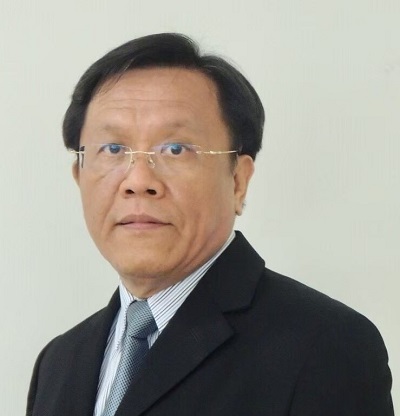Environmental concerns have been raised for over a decade due to serious issues caused by industries and humans on the environment. Mr. Veera Kwanloetchit, President of the Plastics Institute of Thailand, shares: “The plastics industry is also trapped on this subject since plastics business operations were used to the ‘Linear Economy’ that focuses on Make-Use-Dispose concept. Without a proper disposal system, this created many problems. Recently, the ‘Circular Economy’ concept is broadly recognised by the society as the focus is on the optimisation of resource usage and decrease in generated waste.”

Mr. Veera Kwanloetchit, President of Plastics Institute of Thailand
Plastic waste contributes to the environmental pollution owing to the significant amount of waste generated, either from industries or households, since plastic has been widely used by humans. The growing world population has pushed the amount of plastic waste significantly due to single-use plastic applications, especially during the COVID-19 pandemic. In “An Overview of Plastic Waste Generation and Management in Food Packaging” research paper published by MDPI, it forecasted world accumulated plastic waste in 2020 at 6 billion metric tonnes with 20% recycling taking place. Then the waste will be increased to 8 billion million metric tonnes in 2030 and 11.1 billion metric tonnes in 2040, respectively. The rapid growth is from the impact of the “new normal” at post COVID-19 crisis. “Therefore, circular economy concept is set to be fully implemented in the plastics industry in order to optimise plastic waste management. Eco-design, recycled resin content requirement, and development of end-use applications of recycled resin will be in radar, as well as the education and the environment awareness in value-chain stakeholders will be emphasized for business and environment sustainability,” according to Mr. Kwanloetchit.
Mr. Kwanloetchit also explained that the growth of the plastics industry is still in line even when faced with a 5.3% decline in 2020. The plastics industry has been growing for over 40 years with the recent growth posted in 2011-2019 at 3.5% per annum. The consensus is that the industry will post recovery 2021-2022 because the safety and hygienic products and practices in various countries will increase demand for single-use plastics in daily life, such as food delivery, e-commerce business, and medical devices.
“The plastics industry in Thailand is also moving in line with the global direction, especially in terms of environmental concerns. Single-use plastic waste has generated environmental problems that 3R (Reduce, Reuse, and Recycle) is now being given emphasis in upstream, midstream, and downstream activities of the industry. The Thailand Government has been promoting BCG (Bio-Circular-Green economy) model as a national agenda,” according to Mr. Kwanloetchit. Thailand plastics industry has adopted the agenda to minimise waste by developing selective applications for bioplastics and developing the entire recycling system - from collecting through recycling - and applying methodologies and tools for energy saving. In addition, upcycling which will increase value of reused product is also covered by circular economy.
Contact:
Mr. Veera Kwanloetchit
President
Plastics Institute of Thailand
Tel: +66-3915340-43
Line ID : @Thaiplastics
Website: http://www.itc.or.th: www.thaiplastics.org
- This article is also found in the December issue of the International Plastics News for Asia. To read the e-zine, click here.














